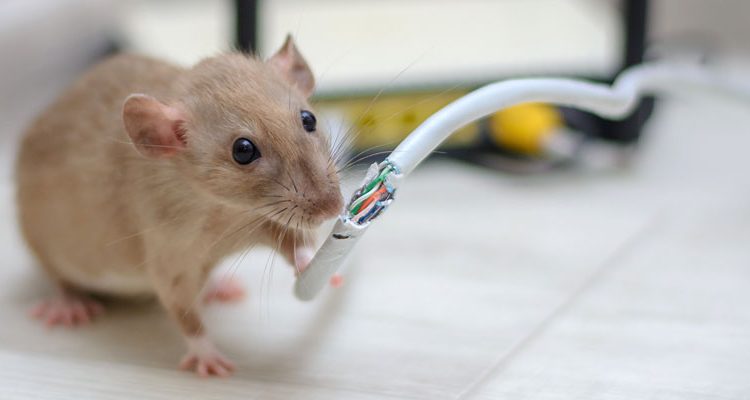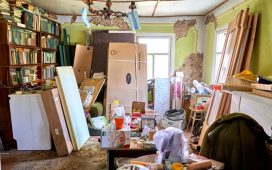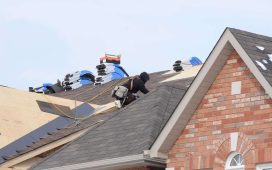You might hear them scurrying in the attic or catch a glimpse darting across the kitchen floor—but rodents like mice and rats often go unseen until the damage is done. While they may seem like harmless houseguests, the truth is that rodents pose serious risks to your health, home, and peace of mind.
Whether you’re dealing with a full-blown infestation or just suspect their presence, it’s important to understand the hidden dangers rodents bring into your home—and why fast action matters.
1. Health Hazards: Disease Carriers in Disguise
Rodents are more than just an annoyance—they’re known carriers of dozens of dangerous diseases, some of which can be transmitted directly to humans. These include:
- Hantavirus
- Salmonella
- Leptospirosis
- Rat-bite fever
- Lymphocytic choriomeningitis (LCMV)
These diseases can spread through contact with rodent urine, droppings, saliva, or nesting materials. Inhaling particles from dried droppings or urine is especially dangerous and can lead to serious respiratory conditions.
Even if you never see the rodents themselves, their waste can silently contaminate your home’s air and surfaces.
2. Allergies and Asthma Triggers
Even if you avoid direct disease transmission, rodent infestations can worsen indoor air quality, triggering allergies and asthma—especially in children and sensitive individuals.
Hair, dander, and droppings left behind by rodents become airborne and can cause:
- Sneezing
- Itchy eyes
- Wheezing
- Skin irritation
In fact, studies show that children living in rodent-infested homes are at significantly higher risk for asthma attacks and allergic reactions.
3. Fire Hazards: Gnawing Through Electrical Wires
Rodents have teeth that never stop growing, so they constantly chew to wear them down. One of their favorite targets? Electrical wiring.
This can result in:
- Exposed wires
- Short circuits
- Power outages
- House fires
In fact, it’s estimated that rodents cause up to 25% of house fires of unknown origin. A single mouse chewing through the wrong wire could put your entire home and family at risk.
4. Structural Damage: Hidden but Costly
Mice and rats are expert burrowers. Once inside your walls, attic, or crawlspace, they can cause major damage by:
- Shredding insulation
- Tunneling through drywall
- Nesting in HVAC systems
- Damaging wood beams and supports
The worst part? Much of this damage happens out of sight. By the time you notice signs of an infestation, structural repairs may already be needed.
5. Contaminated Food and Surfaces
Rodents don’t just sneak into your pantry—they contaminate it. A single mouse can leave behind hundreds of droppings and urine spots in a short time. If they get into your food supplies, it’s unsafe to consume anything they’ve touched.
They can also spread bacteria by:
- Walking across countertops and dishes
- Nesting behind appliances
- Chewing through food packaging
This creates a serious hygiene issue, especially in homes with children or pets.
6. Reproduction Rates: Small Problem, Big Fast
One of the biggest dangers of a rodent problem? How fast it can spiral out of control.
- A single female mouse can give birth to 5–10 litters per year, with up to 12 babies per litter.
- Rats can reproduce just as quickly, especially in warm, sheltered environments.
Without intervention, a small rodent presence can explode into a major infestation within weeks. The longer you wait, the more costly and complicated the removal process becomes.
7. Psychological Stress and Loss of Peace of Mind
Living with rodents in your home can affect your mental well-being. Many people report:
- Trouble sleeping due to scratching or squeaking sounds
- Constant anxiety about contamination
- Embarrassment or fear of having guests over
Your home should be your safe haven—not a place where you’re constantly on edge.
What Should You Do If You Suspect Rodents?
Here are a few warning signs to watch for:
- Droppings or urine smells
- Scratching or movement noises in walls or ceilings
- Chewed packaging or holes in food containers
- Nesting materials (shredded paper, insulation, fabric)
- Grease marks along baseboards or walls
If you spot any of these, don’t wait. DIY traps may catch a few, but they rarely address the source of the problem—nests, access points, and future breeding.
How Professional Rodent Control Can Help
A licensed pest control expert can:
- Perform a full inspection of your home
- Identify access points and seal them off
- Safely remove rodents and nests
- Sanitize affected areas to remove bacteria and odors
- Set up prevention systems to keep rodents out for good
Final Thoughts
Rodents may be small, but the problems they cause are anything but. From health risks to fire hazards and long-term structural damage, these hidden dangers make it clear: rodents have no place in your home. We recommend pest control in new york.
















